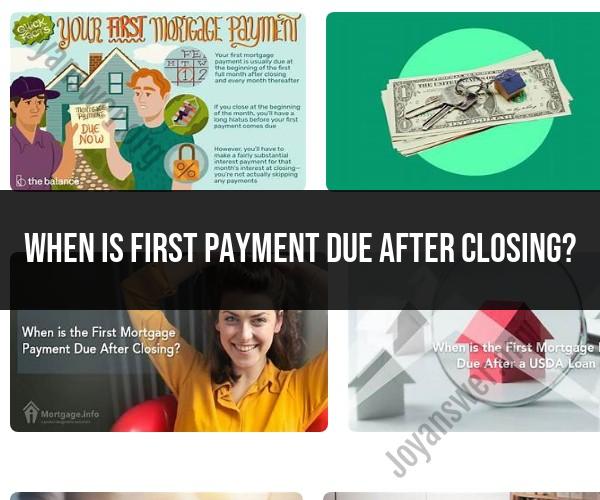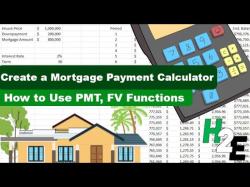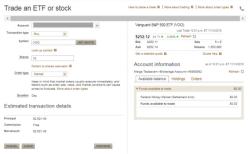When is first payment due after closing?
The due date for the first mortgage payment after closing depends on several factors, including the terms of your mortgage loan and the date of your loan closing. Here are some key points to consider:
Closing Date: The date when you close on your mortgage loan is a significant factor in determining when your first payment is due. The closing date can vary, but it's typically near the end of the month.
Grace Period: Most mortgage loans come with a grace period during which you can make your first payment without incurring late fees or negative credit reporting. This grace period is typically 15 days but can vary by lender.
Interest Prepaid: At closing, you may be required to prepay interest for the remaining days of the month in which you close. For example, if you close on June 15, you might prepay interest for the remaining 15 days of June.
First Payment Due Date: The due date for your first payment is typically on the first day of the month following the month in which you close. So, if you close in June, your first payment is often due on August 1. This provides some time for processing and mailing the initial payment.
It's important to consult your loan documents and speak with your lender to confirm the exact due date for your first mortgage payment. The due date may also be specified in your Closing Disclosure, which is provided to you three days before closing as part of the mortgage closing process.
Additionally, keep in mind that your mortgage statement should provide you with detailed information about your monthly payments, including the amount due, due date, and any additional information related to your loan. Always review your loan documents and communicate with your lender to ensure you make timely mortgage payments.
First Payment Due After Closing: What You Need to Know
Your first mortgage payment is typically due on the first day of the second month after the closing date. This is because mortgage payments are typically made in arrears, meaning you are paying for the previous month's mortgage.
For example, if you close on your home on August 4, 2023, your first mortgage payment would be due on October 1, 2023.
Mortgage Payments After Closing: When Does the Clock Start?
The clock on your mortgage payments starts on the closing date. This is the date on which you sign the final paperwork and become the official owner of the home.
The Countdown to Mortgage Payments: Post-Closing Deadlines
In addition to your first mortgage payment, there are a number of other post-closing deadlines that you need to be aware of. These deadlines vary depending on the lender and the type of mortgage you have, but they may include:
- Homeowner's insurance: You will need to have homeowner's insurance in place by the closing date.
- Property taxes: You will need to pay property taxes on your new home. The amount of property taxes you owe will vary depending on the location of your home and the assessed value of your property.
- Private mortgage insurance (PMI): If you are borrowing more than 80% of the purchase price of your home, you may be required to pay PMI. PMI is insurance that protects the lender in case you default on your mortgage.
It is important to be aware of all of your post-closing deadlines and to meet them in order to avoid any late fees or penalties.
Tips for Avoiding Late Mortgage Payments
Here are a few tips for avoiding late mortgage payments:
- Set up a budget and track your spending. This will help you to ensure that you have enough money to make your mortgage payment each month.
- Set up automatic payments. This will ensure that your mortgage payment is made on time each month, even if you forget.
- Create an emergency fund. This will give you a cushion to fall back on if you experience a financial setback and cannot make your mortgage payment.
If you are struggling to make your mortgage payment, it is important to contact your lender as soon as possible. Your lender may be able to work with you to create a modified payment plan or to offer other assistance.













